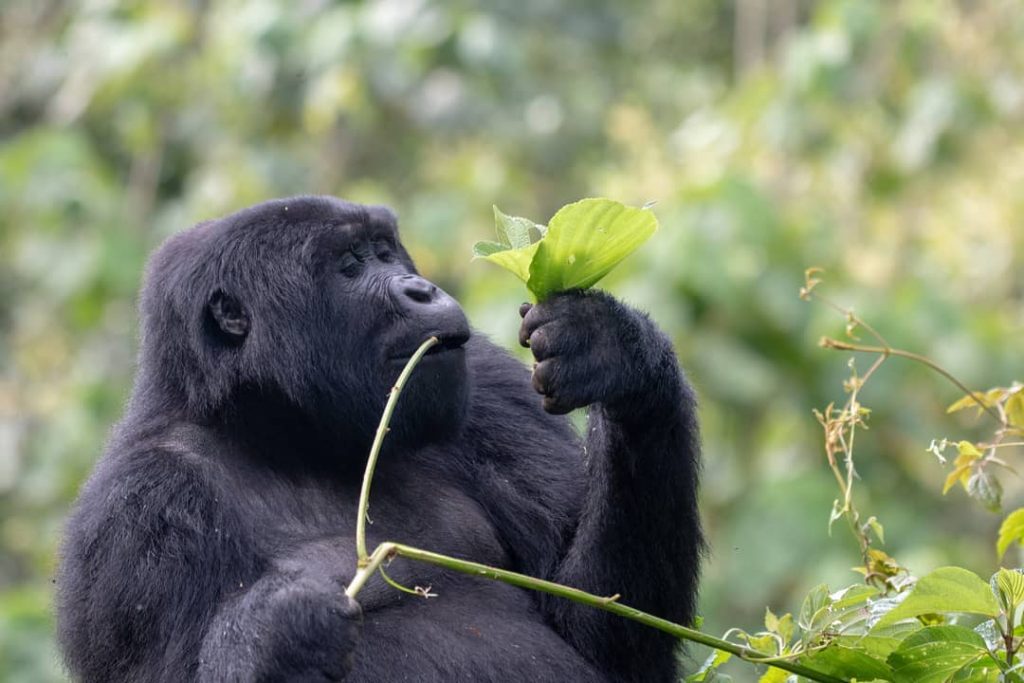Commonly Asked Questions About Gorillas

Commonly Asked Questions About Gorillas : For travellers interested in watching the gorillas in Africa they will have the opportunity to access a number of different gorilla species in the different national parks in the different countries which will give you the chance to observe a number of rewarding species and a number of features that will help you understand more about the species in the wild as you get to spend an hour with them. For travellers interested in understanding more about the species there are a number of commonly questions that are asked questions about the gorillas before travellers make their way to the national parks to watch the different gorilla species in the wild. In this article we are going to help you and give answers to some of commonly asked questions about the gorillas in the wild to understand more about the species before you set out to visit them
Are gorillas dangerous?
Among the main questions about the gorillas for travellers interested in participating in the gorilla trekking experience in Africa is whether the species are dangerous. Yes, just like any wildlife species the gorillas are quite dangerous species but the gorillas are able to watch are accustomed to human presence hence making them safe to be tracked this is because of the gorilla habituation process that is carried to ensure that they are safe, it should also be noted. It is important for travellers to keep a distance away from the gorillas and also you should follow the lead of the guide and the rules and regulations for gorilla trekking in Africa to ensure that you have an amazing and safe gorilla trekking experience. it should be noted that the habituated gorillas unless provoked are quite harmless hence following the guide and the rules and regulations for a memorable safari experience.
What is a silverback gorilla?
A silver back gorilla is a male gorilla that is grown and developed grey hair on its back hence being called the silverback. It should be noted that once the sun hits the back of the silverback it makes the grey hair look silver. Also important to note about the silverbacks in the gorilla family are able to contest for leadership of a gorilla family and this involves challenging the dominant silverback to a fight and the winner is able to become the next head of the gorilla family and the loser is chased away from the gorilla group. Although a gorilla family can have as many of the silverbacks, the dominant silverback has all the mating rights with the adult females in a gorilla group, the dominant silverback is also responsible for protecting the gorilla family form external attacks from other gorilla families and also the expansion of the family which can be done through raiding other groups for their members or through reproduction.
What do gorillas eat?
A number of travellers ask themselves the diet of a gorilla. It should be noted that the gorillas are not carnivores although they are quite intimidating and quite strong. Gorillas are omnivores and can be seen eating a number of vegetation like the bamboo shoots, they can also be seen eating a number of invertebrates like lava, millipedes and centipedes. However in seasons where fruit is readily available, they can be seen abandoning plants like wild celery, bamboo shoots to eat fruit.

How much does a gorilla weigh?
Another commonly asked question about gorillas is how much they weigh, the average weight of an adult male gorilla is 71kg whereas the average weight of a female gorilla is 59kgs. For travellers interested in gorilla trekking in Africa, they will have the chance to watch the mountain gorillas in Africa and the eastern lowland gorillas in Africa as they participate in gorilla trekking in Africa which will lead you to gorilla trekking in Bwindi impenetrable national park and gorilla trekking in Mgahinga national park. travellers can also get to watch the mountain gorillas in Rwanda by participating in gorilla trekking in Volcanoes national park and the eastern lowland gorillas by participating in gorilla trekking in Kahuzi biega national park and the mountain gorillas in Congo by participating in gorilla trekking in Virunga National Park.


